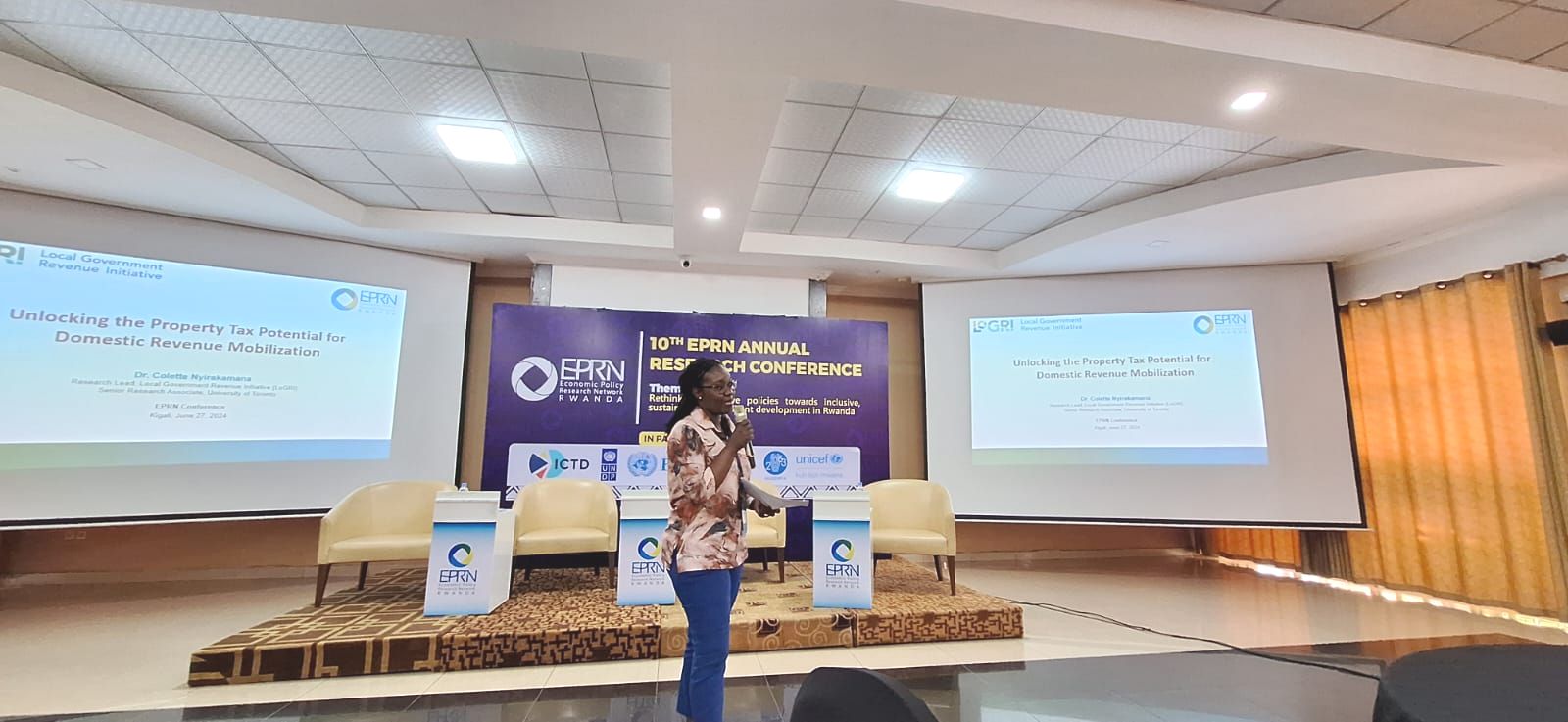At the 10th Annual Economic Policy Research Network (EPRN) Rwanda Economic Research Conference, Dr. Colette Nyirakamana, Research Lead at the Local Government Revenue Initiative (LoGRI), delivered a presentation on unlocking the potential of property taxation for domestic revenue mobilization. Her address highlighted the significant challenges in property taxation systems and the innovative approaches developed by LoGRI to address these issues, particularly in lower-income countries.
Tackling Barriers to Property Taxation
Dr. Nyirakamana outlined three key barriers to effective property taxation and presented actionable solutions:
Land Registration and Addressing Challenges
Many systems rely on centralized land registration, which is often slow, contentious, and costly. Incomplete and complex local addressing systems exacerbate enforcement gaps. Dr. Nyirakamana proposed separating tax registration from formal cadastral processes and utilizing satellite data to streamline property identification and addressing.
Valuation Inefficiencies
Traditional valuation methods are slow, expensive, and prone to corruption. Area-based systems, while simpler, can lead to regressive taxation. Hybrid valuation models—using observable property characteristics to calculate taxable values—offer a faster, cost-effective, and more transparent alternative.
Technological and Trust Deficits
Complex automation projects often create unsustainable dependencies on external providers. Simplified, flexible IT systems that emphasize local support can mitigate these risks. Dr. Nyirakamana also emphasized the need to rebuild public trust through transparent reforms, taxpayer outreach, and linking revenues to visible public services, such as participatory budgeting.
Insights and Practical Applications
Dr. Nyirakamana highlighted LoGRI’s successful reforms in Freetown, Sierra Leone, as a case study. By doubling the number of assessed properties and automating tax systems, the city significantly improved both revenue potential and actual collections. This approach demonstrated the value of combining practical technical reforms with strategies to build public and political support.
Conference Impact
The EPRN Annual Conference underscored the critical role of property taxation in enhancing domestic revenue mobilization. With sessions covering diverse economic topics, the event fostered knowledge exchange and collaboration among participants from various sectors. Dr. Nyirakamana’s presentation exemplified the conference’s focus on actionable insights, providing a roadmap for governments seeking to strengthen their fiscal systems while fostering public trust and compliance.
By addressing technical, political, and institutional barriers with innovative and context-sensitive strategies, LoGRI’s work showcases the transformative potential of property tax reforms for sustainable development.
You can find the full presentation here.

Colette Nyirakamana
Research Lead

